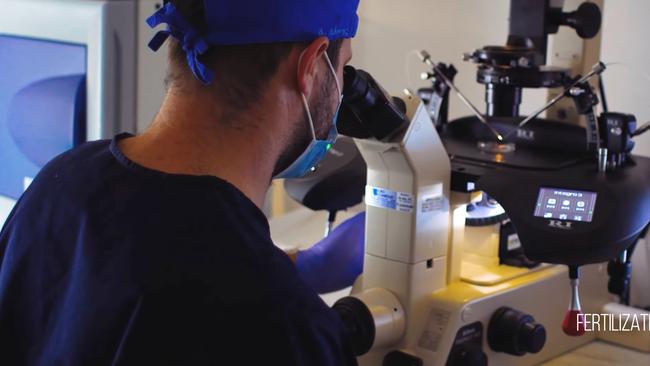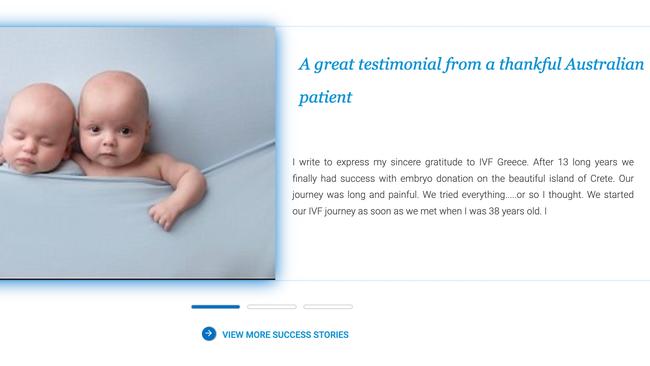Australian couples caught up in the controversial surrogacy clinic in Greece have been given an update
Thirty-six Australian couples caught up in the Greek surrogacy trafficking scandal have finally been given a major update, two months after police shut down the controversial clinic.
Parenting
Don't miss out on the headlines from Parenting. Followed categories will be added to My News.
Australian couples trying to start families through a controversial surrogacy clinic in Greece have been told their supplies may not have been compromised, after all.
The 36 Australian couples and five women have been told sperm, eggs and embryos from the embattled Mediterranean Fertility Institute (MFI) will be transported to Chania General Hospital in Crete.
It comes nearly two months after the clinic was shut down by police amid claims of human trafficking and fraud.
Its founding member and seven staff were arrested, accused of forcing 169 women from countries including Ukraine, Romania and Georgia to be surrogate mothers or egg donors — and keeping them under surveillance.
They were also accused of illegal adoptions and fake IVF treatments.

Brisbane-based family and fertility law specialist Stephen Page raised concerns at the time of the raids about whether the electricity fuelling the cryogenic tanks had been kept on.
“An obvious concern was that since MFI was no longer paying the rent, who is paying to ensure the electricity stays on for the facility for the cryogenic tanks?” he said in letters to the Australian embassy in Athens and the Greek consul general in Sydney.
But he has subsequently learned “that within the next day all the genetic material (eggs, sperm and embryos) are being moved from the defunct Mediterranean Fertility Institute to Chania General Hospital”.
“The material will remain under the control of the Greek IVF regulator, and should remain safe,” he said.
“With the Mediterranean Fertility Institute going under, there was always the point that with the electricity and rent being unpaid, that the power would be switched off.

“That would have been a disaster – with the loss of all the genetic material.
“This step by Greek authorities to move the genetic material to a safe harbour is a wise one, to ensure that the vital treasure of would be parents is not lost.”
“Given the enormity of this move, hopefully it is only a question of time before intended parents can access their genetic material- and follow their dream of creating a family,” he added.
The couples caught in the IVF limbo had been struggling for updates on the clinic and their samples, with many relying on Facebook and intermediaries in Crete for information.
In late August two Australian families were given access their babies born through surrogates, after DNA testing confirmed they were a genetic match.
Hellenic police, who co-ordinated the raid in August in Athens, will allege the MFI was behind almost 200 cases of exploitation of women in the field of oocyte removal and surrogacy, while deceiving patients through sham embryo transfers (IVF) and brokering illegal adoptions since December 2022.
Authorities are also investigating 400 cases of fraud and personal injury through IVF procedures at the facility.
“The 400 involved mainly women who genuinely thought they were doing egg removal and were injured in the process and did not fall pregnant – Australian women were among those victims of fraud and injury,” a Hellenic police spokeswoman said.
A police raid during the early hours of August 8 saw eight staff arrests and newborns placed in detention in a high security section of a Chania Hospital.
Police will allege gang leaders were paid €5,000 ($A8,424) per surrogate they recruited from abroad who were then forced to live supervised in 14 homes in Crete.
More Coverage
Originally published as Australian couples caught up in the controversial surrogacy clinic in Greece have been given an update




